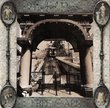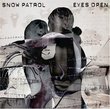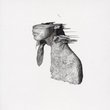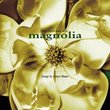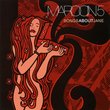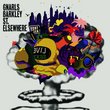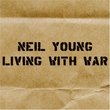| All Artists: Michael Penn Title: Mr. Hollywood Jr., 1947 Members Wishing: 1 Total Copies: 0 Label: Mimeograph Records Original Release Date: 1/1/2005 Re-Release Date: 8/2/2005 Genres: Alternative Rock, Folk, Pop, Rock Styles: Singer-Songwriters, Adult Alternative Number of Discs: 1 SwapaCD Credits: 1 UPC: 750078016327 |
Search - Michael Penn :: Mr. Hollywood Jr., 1947
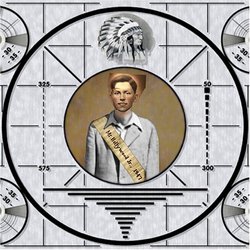 | Michael Penn Mr. Hollywood Jr., 1947 Genres: Alternative Rock, Folk, Pop, Rock
A new ALBUM PRESENTS 12 NEW SONGS SET AGAINST THE BACKDROP OF POST-WWII AMERICA Michael Penn is fascinated with the year 1947. "In so many of my interests and wherever they take me, that year keeps cropping up." On his new... more » |
Larger Image |
CD DetailsSynopsis
Album Description A new ALBUM PRESENTS 12 NEW SONGS SET AGAINST THE BACKDROP OF POST-WWII AMERICA Michael Penn is fascinated with the year 1947. "In so many of my interests and wherever they take me, that year keeps cropping up." On his new record Mr. Hollywood Jr., 1947, Penn weaves historical, political and social events and themes into 12 meticulously crafted songs that tell a series of inter-connected stories of human relationships and romance set against the backdrop of post-World War II America. Mr. Hollywood Jr., 1947 paints a picture of a Los Angeles that doesn?t exist anymore. "When I was writing these songs I found that I was placing myself, people, places and events into a different world. I knew what it was. I recognized it. It was America in 1947," says Penn. "The events set in motion that year were resonating for me more than ever. Some of it was just little things. The Department of War got a name change. The National Security Act was passed and the C.I.A. was formed. It was the year of the U.N. Partition and the invention of the transistor. The point is, this isn?t what the record?s about, but it?s the sepia it occupies." On the self-produced album, Penn is joined by many longtime collaborators, including Patrick Warren (keyboards), Aimee Mann (background vocals and bass) and former member of L.A. cult band The Grays, Buddy Judge (harmony vocals). Mr. Hollywood Jr., 1947 will be released on Penn?s Mimeograph Records via spinART Records on August 2, 2005. Similarly Requested CDs
|
CD ReviewsClassic Penn -- his best album yet! Jill McAlester | Lawrence, KS | 08/02/2005 (5 out of 5 stars) "I have been a fan of Michael Penn since the release of his first album, "March." I have anxiously awaited the release of his every subsequent album, but I have never been so excited about any album release as I have been about "Mr. Hollywood, Jr. 1947." Going beyond the concept of the album (which I find intriguing), the songs are among the best-crafted he has ever released, and in classic Penn style, have a way of running through my mind even when the stereo is off. One of my favorite songs on the album is "Walter Reed," which I interpret as being about a soldier returning from WWII. Not able to fit back in to the life and love he left behind, the song very movingly projects the pain, anger, and isolation that many GIs experienced (and still experience) upon their return home. Another favorite is "OK," a soothing lullaby for a troubled relationship. No empty promises of a perfect resolution to whatever crisis the song is addressing, but there is at least the hope of a tender and sincere reconciliation. In sharp contrast to the quiet, gentle "OK" is the bright, peppy "On Automatic." An anthem of frenetic (and possibly irrational) optimism, it's a celebration of high times and fresh starts. I'd have to say that for me, personally, the weakest song on the album is "You Know How," which is only spoiled for me because MP's phrasing is very reminiscent of Bob Dylan in some parts. It's still a good song, but not my favorite. In addition to the nine very solid songs on this album, three short concept pieces commemorate specific events from the year 1947, including the Roswell UFO incident and the invention of the transistor. My favorite of these, though, is the "Television Set Waltz." It sounds so much like a period recording that for the few moments it plays, I can almost imagine I'm in another place and time. If you're a long-time fan of Michael Penn, this album is a must-own. And if you are not familiar with his music, this would be a very good introduction. I feel it represents his best work to date." Penn is back, but not better than ever J. Garson | Hue-stone, Tejas | 11/16/2005 (3 out of 5 stars) "This is a great album. It has several tracks that really impressed me. Still, there's something missing here. Mr. Penn's earliest works had a brooding quality that is certainly present here, but they also just flat out rocked. Musical themes came and went at breakneck pace, and the sound of the early albums was ritchly layered with found sounds and jangling instrumentation. Since the incredible "Resigned", Penn has seemed to prefer to use simple rhyme shcemes and slower pacing. The writing is still clever, but a cloud of depression has descended on his work, and it does not seem to want to let any sun through. If you loved MP4 you'll definately love this. Penn's wicked tongue lashes out with clever lyrics and bitter choruses. His guitar lines are still sweet, and the pace is brisk. I would have prefered more of the angry young man who first caught my ear, but this will do." Quietly very good Joe Sheedy | Marcellus, New York United States | 09/30/2005 (4 out of 5 stars) "This cd continues Michael Penn's unapologetic extension of his creatively beatlesque evolution. In some songs he builds upon his last album and matures in his lyrical content and ornate, layered musical composition. In others, he steps away from the mixing board and renders pure talent in his singular, unadorned, pleading vocal quality and accomplished acoustic guitar acompaniment. I am ready to see him in concert."
|

 Track Listings (12) - Disc #1
Track Listings (12) - Disc #1